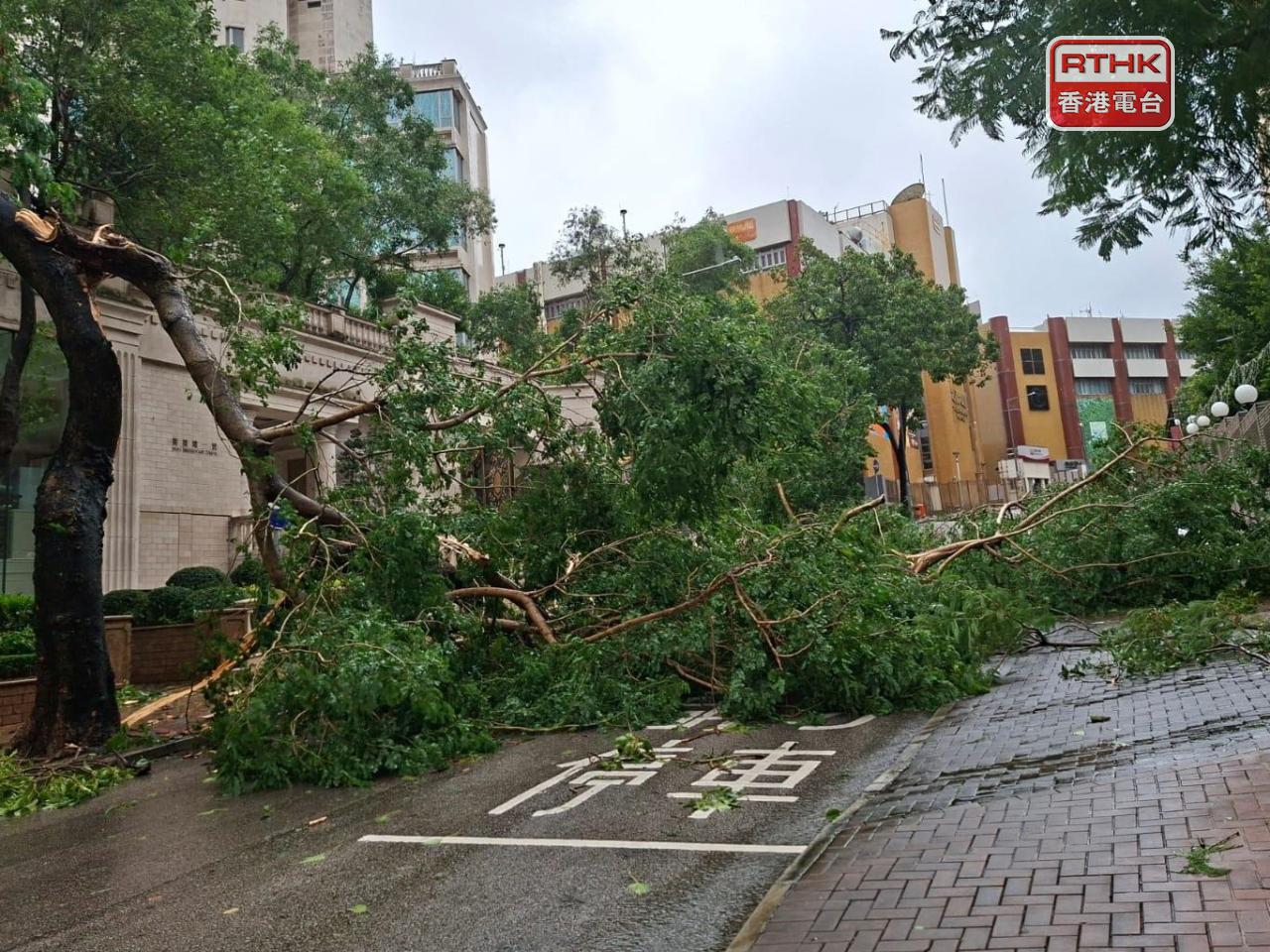An earth scientist said on Wednesday that Hong Kong avoided a direct hit by Super Typhoon Ragasa, and that the city had put in place effective measures to tackle the impact brought about by the storm.
Ragasa triggered Hong Kong's second T10 signal warning this year, marking the first time since 1964 that the highest tropical cyclone warning signal was issued twice within a year.
Speaking on RTHK's Hong Kong Today programme, Benjamin Horton, dean and chair professor of Earth Science at City University, said Hong Kong was spared the worst as Ragasa skirted to the south of the SAR instead of making a direct landfall.
He also pointed out that Hong Kong is better prepared for Ragasa this time, compared to Mangkhut which caused widespread destruction across the city in 2018.
"The evacuation and the warning for this storm were better than (during) Mangkhut. Maybe we had learnt lessons from Mangkhut in terms of making sure people were evacuated. The evacuation began the day before yesterday," he said.
"Shop owners protected their houses with sandbags, emergency managers checked on the roads, and checked on the slopes to make sure they were secure."
Horton noted that while Hong Kong is "one of the most prepared and resilient cities", there's still a need to further boost the city's typhoon precautionary measures.
"The future is climate change. The weather that we've experienced in 2024 or 2025 is only going to get worse in 2026 and 2027, and in the years following that. So there does need to be an adaptive element to the resilience of Hong Kong to make sure that the resilience that we experienced this summer continues into the future."
Separately, a former assistant director of the Hong Kong Observatory, Leung Wing-mo, is warning people not to let their guard down even though Ragasa is moving away from the territory.
He told RTHK that a significant storm surge still poses a threat, and its effects may be comparable to the record-breaking water levels caused by Mangkhut.
"Even though the super typhoon has started to depart, it has not passed the most dangerous period yet. Because we can see that the storm surge is still ongoing... the public cannot let their guard down," he said.





